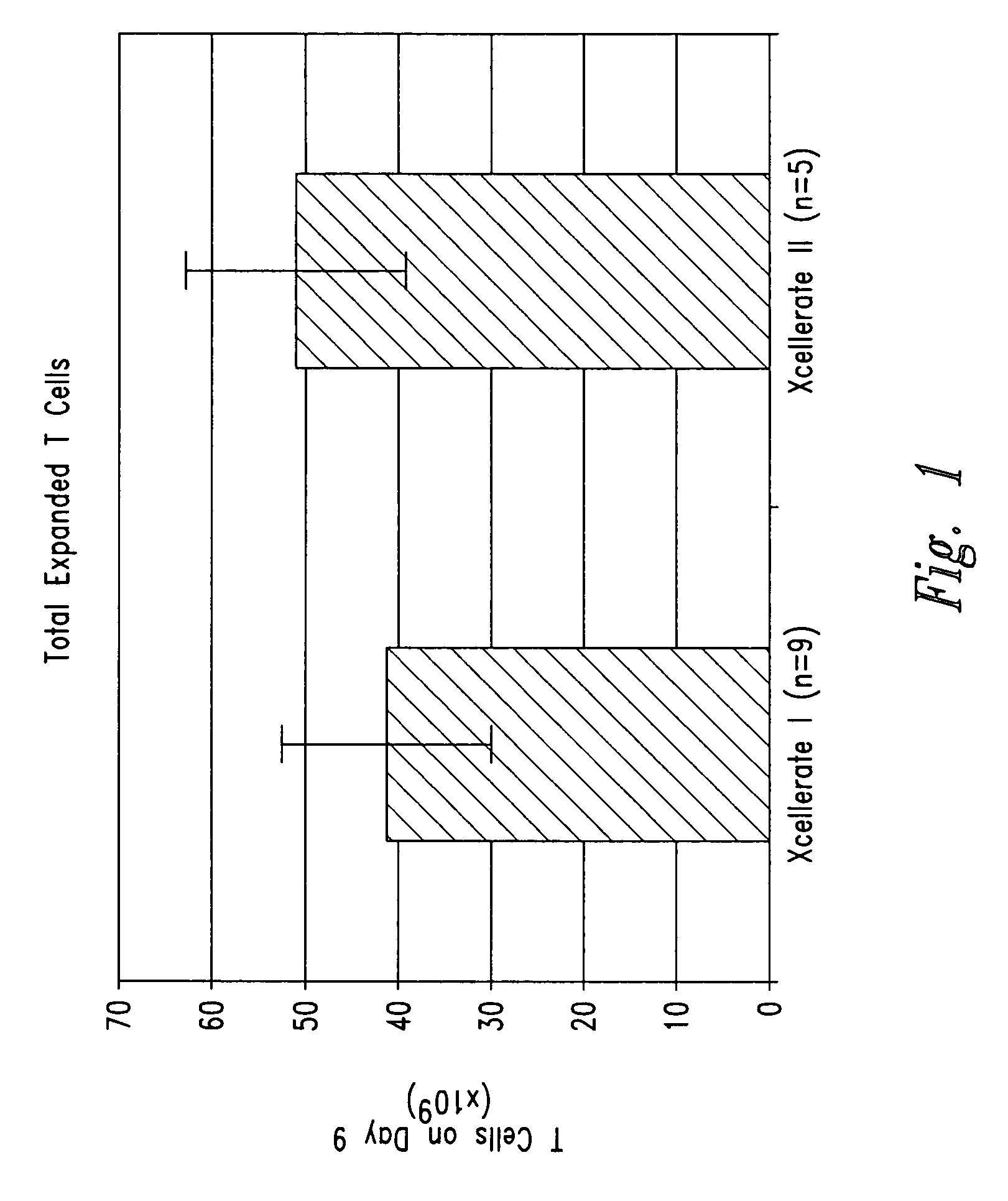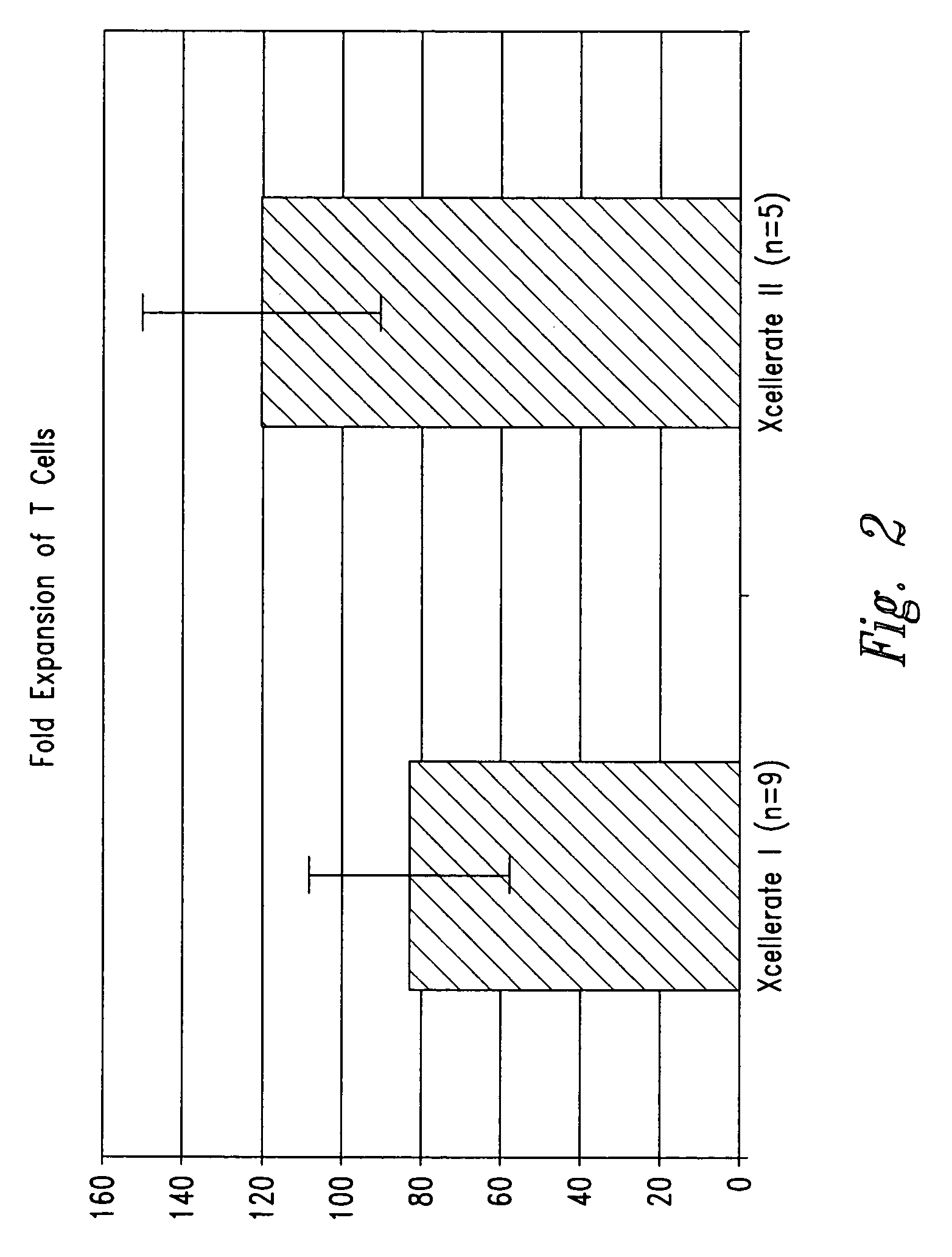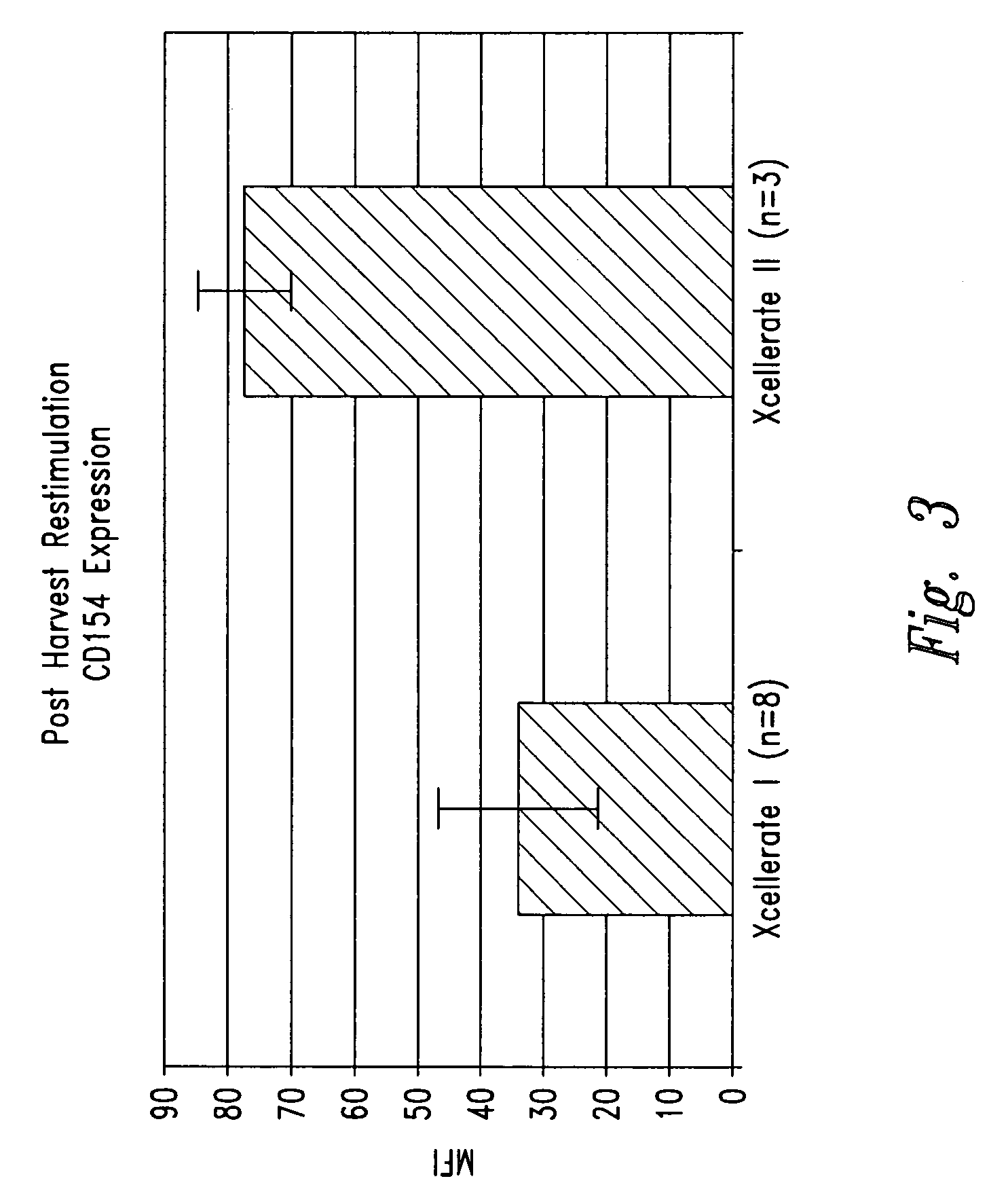Activation and expansion of cells
a technology which is applied in the field of activation and expansion of cells, can solve the problems of contaminating the entire t cell population during long-term culture, affecting the stability of t cell growth,
- Summary
- Abstract
- Description
- Claims
- Application Information
AI Technical Summary
Benefits of technology
Problems solved by technology
Method used
Image
Examples
example i
T Cell Stimulation
[0207]In certain experiments described herein, the process referred to as XCELLERATE I™ was utilized. In brief, in this process, the XCELLERATED™ T cells are manufactured from a peripheral blood mononuclear cell (PBMC) apheresis product. After collection from the patient at the clinical site, the PBMC apheresis are washed and then incubated with “uncoated” DYNABEADS® M-450 Epoxy T. During this time phagocytic cells such as monocytes ingest the beads. After the incubation, the cells and beads are processed over a MaxSep Magnetic Separator in order to remove the beads and any monocytic / phagocytic cells that are attached to the beads. Following this monocyte-depletion step, a volume containing a total of 5×108 CD3+ T cells is taken and set-up with 1.5×109 DYNABEADS® M-450 CD3 / CD28 T to initiate the XCELLERATE™ process (approx. 3:1 beads to T cells). The mixture of cells and DYNABEADS® M-450 CD3 / CD28 T are then incubated at 37° C., 5% CO2 for approximately 8 days to ge...
example ii
Efficiency of CD3+ T Cell Enrichment, Monocyte-Depletion and Granulocyte-Depletion
[0226]For this study, upon receipt at the Xcyte Therapies Development laboratory, the incoming PBMC apheresis product was washed, split and:[0227]1. For the XCELLERATE I process, a monocyte-depletion step was carried out and the CD14+ monocyte-depleted PBMC were cryopreserved and stored in the vapor phase of a LN2 freezer (as noted in Example I). On the day of set-up of the XCELLERATE I process, the CD14+ monocyte-depleted PBMC were thawed and the XCELLERATE process initiated with DYNABEADS M-450 CD3 / CD28 T as detailed in Example I. The average cellular composition and the average efficiency of CD3+ T cell enrichment, CD14+ monocyte-depletion and granulocyte-depletion for the N=5 donors in these initial steps is shown in Table 5.1 and the data for each individual donor is shown in Table 5.2.[0228]2. For the XCELLERATE II process, the PBMC apheresis product cells cryopreserved and stored in the vapor ph...
example iii
Monocyte Depletion
[0241]Monocytes (CD14+ phagocytic cells) are removed from T cell preparations via magnetic depletion using a variety of “irrelevant” (i.e., non-antibody coated or non-target antibody coated) Dynal beads. Depletion was performed by pre-incubating either whole blood after separation in ficol or apheresed peripheral blood with Dynal Sheep anti-mouse M-450 beads, or Dynal human serum albumin-coated beads (M-450), or with Dynal Epoxy (M-450) beads at roughly a 2:1 bead to cell ratio. The cells and beads were incubated for periods of 1-2 hours at 22-37 degrees C., followed by magnetic removal of cells that had attached to beads or that had engulfed beads. The remaining cells were placed into culture alongside un-manipulated cells. Cells were characterized by flow cytometry for cell phenotype before and after depletion.
PUM
 Login to View More
Login to View More Abstract
Description
Claims
Application Information
 Login to View More
Login to View More - R&D
- Intellectual Property
- Life Sciences
- Materials
- Tech Scout
- Unparalleled Data Quality
- Higher Quality Content
- 60% Fewer Hallucinations
Browse by: Latest US Patents, China's latest patents, Technical Efficacy Thesaurus, Application Domain, Technology Topic, Popular Technical Reports.
© 2025 PatSnap. All rights reserved.Legal|Privacy policy|Modern Slavery Act Transparency Statement|Sitemap|About US| Contact US: help@patsnap.com



